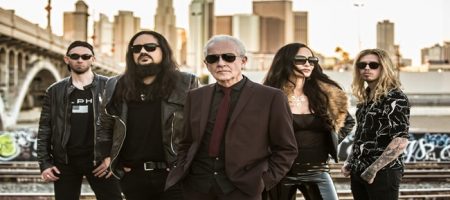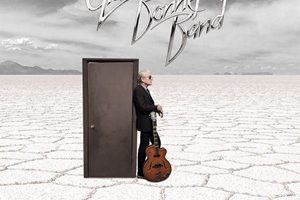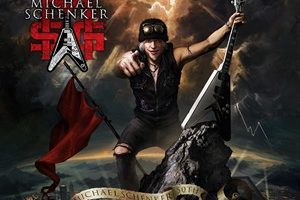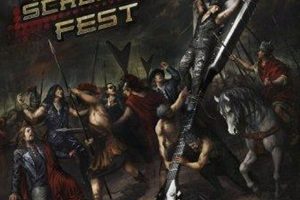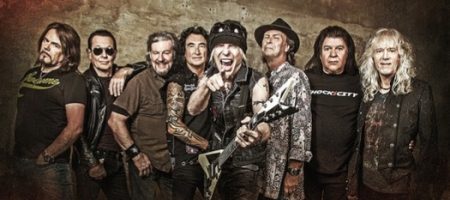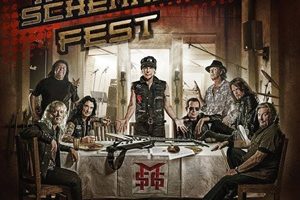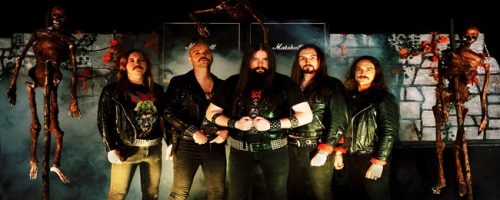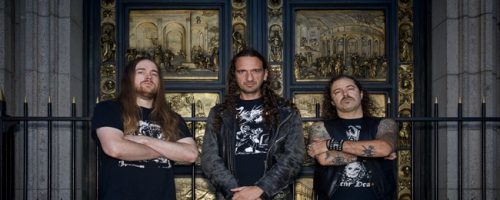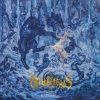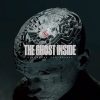Michael Schenker Group – Inner Strength for Infinite Creativity
Thursday, 21st January 2021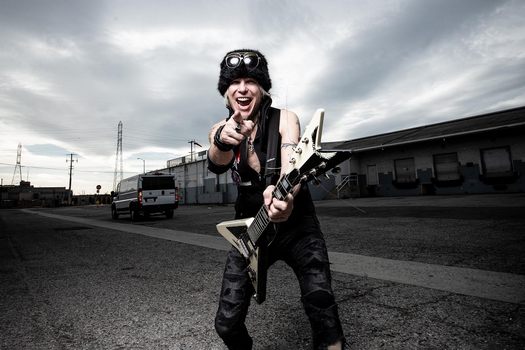
Best known for his melodic and unique guitar play, emotive lead breaks, and stellar hooks/compositions, Michael Schenker has been a part of the music scene now for over fifty years. Inspiring countless musicians in heavy metal and their offshoots, his work within The Scorpions and UFO led to a long, prolific solo career. Returning to The Michael Schenker Group for his latest album Immortal, many will again gain inspiration at the versatility and power of these tracks.
When you interview Michael, it’s evident that once a question is asked the man will give an answer from the heart and be happy to discuss every facet that comes to mind. Within this thirty-minute conversation you’ll hear the full story behind the musicians and compositions of Immortal, the twists and turns for specific choices given the pandemic, how he influenced a generation of guitar players in other genres like thrash and death with his style, and how he sees the celebration of his 50th anniversary as an artist playing out.
Dead Rhetoric: Immortal is the latest Michael Schenker Group album. Tell us how the assembling of singers, drums, and behind the scenes people took shape for this effort – as you have a solid work ethic and gain great performances out of these seasoned players?
Michael Schenker: I must say, it has been a very peculiar development. In 2019 I realized my 50th anniversary is coming up, and I wanted to celebrate that with musicians and friends. It was dragging on, it’s really hard to get people together from all over the world. Eventually I realized that, the album Lonesome Crow with the Scorpions we started working on in 1971. My agent told me that the album came out in 1972 – so I knew I had two years to have hope again. I gave up on making the 50th anniversary. I wanted to put a compact band together – so Barry Sparks kept emailing me as the bass player, and Ronnie Romero was singing on “We are the Voice” on the Resurrection album, I asked him if he would sing. He was supposed to sing all ten songs. Then I was able to assemble the rest of the lineup.
It would be easier to put it all together because everyone was living more or less in the same area except for Barry Sparks. I’m blessed that with all the musicians that I have, they can produce and engineer at their own recording studios. That was the plan. I started writing after I came back from the 70,000 Tons of Metal Cruise. I spent five days in Miami in a hotel and I started writing for the 50th anniversary. I made it to the UK, and when I was sitting there watching the news I heard the first news about the coronavirus, cases coming in. I kept on writing, but it got worse and worse to the point that I had written all of the music, but I couldn’t leave the UK because all the borders were locked. Now I thought what I am going to do – I found a way eventually to make it to the recording studio in Germany with my co-producer Michael Voss. I put down the backing tracks to my compositions, and it was time for Ronnie to start singing. He said, ‘sorry – I can’t make it because of the borders being locked, I don’t want to go into a 14-day quarantine.’ He had other commitments, so we had to think of something else. I said to my partner who is a bass player – I didn’t know what to do, and she said Ralf Scheepers is a great singer. So I trusted her, and I asked Michael Voss and asked if he knew Ralf – he said absolutely, a fantastic singer.
The next day they were recording – I couldn’t believe it! Out of the blue, Brian Tichy was calling up. He heard about my anniversary coming up, he wanted to do six songs on drums. He’s one of the best drummers in the world – and he played before on a Temple of Rock album with “The Devil Knows You’re Dead”. He’s tremendous, and I was shocked. The next thing I know, Michael calls back and says a buddy of his, Derek Sherinian, he wants to make a contribution. What are we going to do, he’s a heavy duty keyboard player, and we have Steve Mann already doing all the coloring in that area. We wanted the album to be more guitar-oriented, I played all the guitars, so we had Steve do coloring where you don’t really hear all the keyboards there. We did a jam with Derek, keyboard and guitar jam. I have never done a jam with a keyboard player, it would be fresh and suitable to do something new. When I heard the end result, I was blown away. Ralf ended up doing two songs – “Drilled to Kill” and he ended up singing on another song “Devil’s Daughter”. I couldn’t believe that all of this was happening.
This was so much harder the work to get everyone together and simplifying it into a complete band to celebrate this anniversary. People were calling in, I didn’t have to do anything. Anything I wanted to do, all of a sudden it happened all by itself. The next thing was Ronnie, are you ready? He was still not able to – we thought of something. Michael Voss suggested Joe Lynn Turner – one of my favorites. He had a contact, the next day they were singing and recording. And then he sang another song “Sangria Morte”- and Simon Phillips called in. Everything just happened all by itself, the way I wanted it in the first place I couldn’t do it, and now it all happened by itself.
Michael writes the lyrics and melodies – which helps if we get stuck. I came back from the hotel and he came up with “After the Rain”. It was so heartfelt, a personal thing. Bit by bit, songs were being taken care of. Eventually Ronnie was available, so he ended up with less songs of course. With Brian helping out too, it all got designed by something else rather than me. It couldn’t have worked out better than it did.
Dead Rhetoric: You mention always playing from the heart – even this deep into your career. How do you gain such energy and creativity after being a musician and writing/recording for almost 50 years at this point in your life?
Schenker: Because I was always the kid in the sandbox. Things are fun, playing the guitar with strings to put things together and creating goose pimples. No competition, no comparing, I’m not looking at what other people are doing. How does Michael Schenker see it? You have to go within yourself. Many people are struck by fame, getting success, getting a piece of a trend. If anything, I created a trend. In the 1980’s, other people copied my style and it kept the trend fresh. I get my inspiration from the inner strength of infinite creativity. If a person is willing to express himself or herself, you go within – because that’s where the fresh colors are.
I have been doing that. I started when I was 15, I did it more when I was 16, and then by 18 I stopped listening to other music altogether. I just go with the pure joy of putting things together, self-expression. I asked myself very early in life why I should do something that somebody else has already been doing? That’s just repeating something. Look inside myself and see what’s in there. That’s how I automatically, without even knowing but people told me later, I didn’t even notice myself that I was creating my own guitar style. That’s where I get my freshness from. If you go to your inner self, it’s like a tropical ocean where you are able to get a different look. A kaleidoscope. If you are not desperate to be famous and make money, or being top of the line – something happens automatically that is beyond than you will ever imagine. It all was told by other people much later in life.
Markus Staiger the head of Nuclear Blast, he said to me Michael, if you would have never been, Nuclear Blast never would have existed. He said thrash metal never would have been. He believes that thrash metal, death metal, would have never been. I never found out about this until so much later in my life. It just came to me as news. Slash, Kirk Hammett, all of these people – I never knew about it until the 1990’s. So many more things I find out in my life, the impact on musicians. Because of that and not really focusing on the temptation of being sidetracked – I could have joined Ozzy Osbourne, Deep Purple, Whitesnake. But when I finished with Strangers in the Night and Lovedrive for the Scorpions, after writing Lights Out when I was 21 in 1976, it became a hit. I got scared, and I ran away from UFO because the music business expected me to write more hits. I didn’t want to be locked into that kind of thing. That’s why I started in 1980 the Michael Schenker Group – finding a singer without an ego joining me in the sandbox, having fun playing without expecting anything.
Peter Mensch (the manager) discovered I had left UFO and did the Lovedrive album, he wanted to make big business with me. He found all the musicians I had for MSG. I was in Boston rehearsing with Aerosmith’s rhythm section, Joey Kramer and Tom Hamilton, to do the first Michael Schenker Group album with them. He was unbelievable – UFO and Rush as well used to tour together, we were tight and became good friends. That’s how Simon Phillips became involved. There were so many different incarnations, Billy Sheehan, Denny Carmassi, etc. Eventually I ended up with Jeff Beck’s rhythm section, Roger Glover as a producer. At least I made the first step in the right direction, fulfilling my own vision after I finished my development as a guitarist with UFO. I wanted to experiment and take things easy.
I did acoustic instrumentals, I did electric instrumentals, I did cover versions – all sort of things. In one month I had three phone calls – one from the Scorpions to play gigs in Europe and Japan for a live tour, Deep Purple asked me to join them, and Phil Mogg showed up in Los Angeles completely destroyed and begged me to help to recreate UFO, that’s how we ended up with the album Walk on Water. I always stay true to myself, and that never really was a problem because that’s always who I have been.
Dead Rhetoric: What will the touring situation look like to support this record? Will it be another situation where you hopefully have multiple singers at your disposal?
Schenker: What we’ll do… eventually we put together a show for Japan, a five-hour program. An A and B set, two nights in the beautiful venue. 5,000 seats each night, similar to Budokan. Playing songs based on the 40th anniversary of the Michael Schenker Group. We spent a whole year preparing for this, and then it got cancelled – it was like a smack in the face. All those notes I would have to play in a five-hour program, it’s a lot of work. The Michael Schenker Fest – Graham Bonnet had shoulder surgery. I made a new record, and I have two records with new songs. I’m having a hard time putting a live show together now. There are so many classics and these cancelled tours – people always ask me if I have a problem to put a set together. I say no – whatever I didn’t play last time, I put in the new classics and replace them.
My agent has worked so hard. We had offers for Hellfest in France, Graspop in Holland, the two biggest festivals in Europe were supposed to happen in 2020, they got postponed to 2021. We are still a part of that, those will happen in June 2021. We have a confirmed tour for October 2021 in Europe – four shows in the UK and five in Europe, a few in Russia. Things will develop with the vaccine, things look better and better.
The tour I will be doing with be the Michael Schenker Group in a 50th anniversary tour, performed by the current group. Ronnie Romero, he will be a part of this. He can sing like anybody, and that’s why I think Ritchie Blackmore wanted him, he can sing like Joe Lynn Turner, Graham Bonnet, Ronnie James Dio. Ritchie and I have so many parallels. People who left Rainbow, many ended up joining the Michael Schenker Group. We did the acoustic thing in the middle of the set. He will be the right person for me. Ronnie will be the main singer, to be the perfect person for the 50th anniversary of Michael Schenker live.











